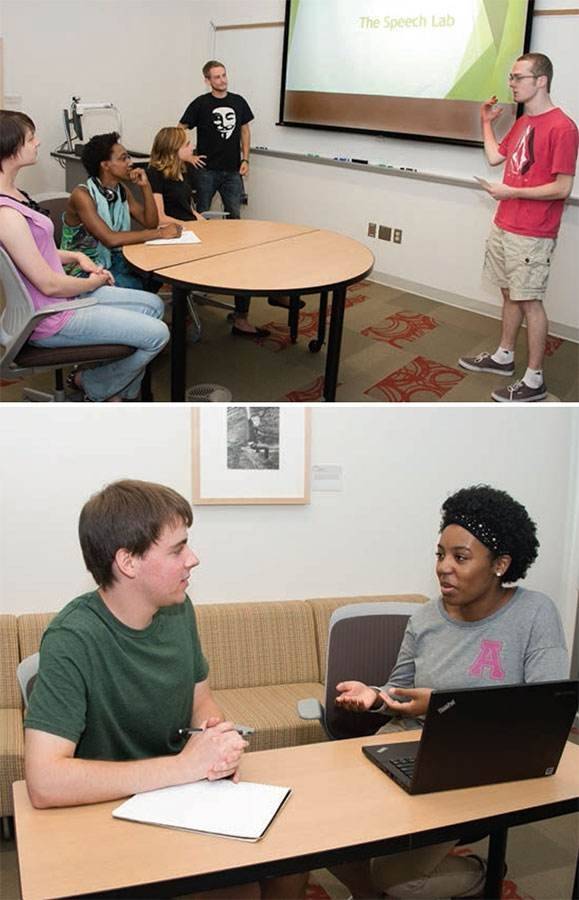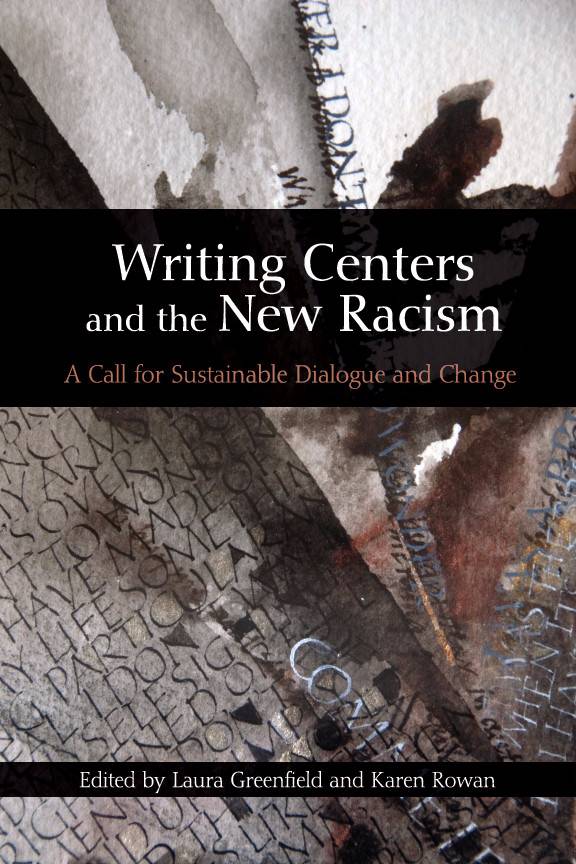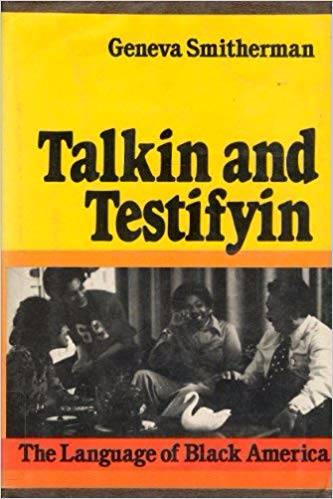Linguistic Diversity Initiative
Welcome!
The Fred Meijer Center for Writing and Michigan Authors, along with the Director of Writing Across the Curriculum, the Knowledge Market Partners (Speech Lab & Research Consultants), members from the English Department, Anthropology Department, and the Division of Inclusion and Equity are joining forces to seek social justice for all students at Grand Valley with our new Linguistic Diversity Initiative.
Linguistic Inclusivity
We recognize that one's home-language is a foundational component to one's sense of self. The ways we speak, write, listen, or sign are expressions of who we are, have been, or hope to be. Our mission is to validate all identities and provide every person with respect for their dignity and understanding through empathy; therefore, we are passionate about creating and maintaining a space for all students to feel comfortable and encouraged to exercise their natural identities free from judgement, criticism, or rejection.
Whether you're coming to the Writing Center or the Knowledge Market for help with writing, researching, or speaking, we believe you have the right to your own voice.
Please click here for our printable flier.

Our Linguistic Inclusive Resolution
In alignment with members of the National Council of Teachers of English, the Linguistic Society of America, and the Conference on College Composition and Communication’s declaration of Students’ Right to Their Own Language (2014), the Fred Meijer Center for Writing and Michigan Authors accepts, validates, and promotes all language varieties represented by the students we serve. Our program does not judge any language or dialect as inferior or incorrect.
Furthermore, our program agrees: “We affirm the students’ right to their own patterns and varieties of language–the dialects of their nurture or whatever dialects in which they find their own identity and style. Language scholars long ago denied that the myth of a standard American dialect has any validity. The claim that any one dialect is unacceptable amounts to an attempt of one social group to exert its dominance over another. Such a claim leads to false advice for speakers and writers, and immoral advice for humans. A nation proud of its diverse heritage and its cultural and racial variety will preserve its heritage of dialects."

The Fred Meijer Center for Writing and Michigan Authors…
- Aims to actively promote not only the acquisition and mastery of discipline-specific styles in writing, but also the acknowledgement, development, and mastery of one’s home language or dialect.
- Does not acknowledge any inherent linguistic hierarchy among the many varieties of English.
- Aligns itself with the GVSU community in stressing the importance of students becoming versed in the language of social and cultural power: Standard Edited Written English (SEWE).
- Recognizes that it is theoretically and pedagogically proven that empowerment and mastery of one’s home language provides a better opportunity for mastery of another language or language variety.
- Believes it is through the empowerment of one’s home language that writers and speakers from any background feel valued and more confident about learning new knowledge and skills.
- Trains writing consultants to respect all language varieties, believing that when individuals feel respected, they are more likely to succeed.
Readings and Resources
This is a living collection. We will be adding resources as we encounter them -- will include educational materials, books, videos, news articles, etc.
Students' Rights to Their Own Language, Conference on College Composition and Communication
English with an Accent, by Rosina Lippi Green
African American English: From the Hood to the Amen Corner, by Geneva Smitherman
Stanford linguist says prejudice toward African American dialect can result in unfair rulings (News Article), 2014
Do You Speak American? -- PBS

Greenfield, L. & Rowan, K.(2011). Writing Centers and the New Racism: A Call for Sustainable Dialogue and Change. Logan: Utah State University Press. Retrieved June 7, 2019, from Project MUSE database.
[1726082679].jpg)
Alim, H. S., & Smitherman, G. (2012). Articulate while black : Barack Obama, language, and race in the u. s.. Retrieved from https://ebookcentral.proquest.com

Smitherman, G. (1977). Talkin and testifyin: The language of black america. Boston: Houghton Mifflin.
If you would like more information about your rights, our initiative, or continued efforts across campus, feel free to contact anyone listed below.
The Writing Center & SWS
Patrick Johnson
Faculty/Staff
johpatri@gvsu.edu
(616) 331-8077
Writing and Michigan Authors, Fred Meijer Center for
119 Lake Ontario Hall
Dept. Phone: (616) 331-2922
Meredith Fedewa
Faculty/Staff
fedewame@gvsu.edu
(616) 331-8493
Writing and Michigan Authors, Fred Meijer Center for
112 Lake Ontario Hall
Dept. Phone: (616) 331-2922
Knowledge Market Partners
Research
Jennifer Torreano
Faculty/Staff
torreaje@gvsu.edu
(616) 331-2604
Library - University Libraries
240 Mary Idema Pew Library Learning and Information Commons
Dept. Phone: (616) 331-3500
Speech
Carl Brown
Faculty/Staff
brownca1@gvsu.edu
(616) 331-8199
Communications, School of
153 Lake Michigan Hall
Dept. Phone: (616) 331-3668
Dept. Fax: (616) 331-2700
English & Anthropology Departments
Colleen Brice
Faculty/Staff
bricec@gvsu.edu
(616) 331-8574
English - Main
226 Lake Huron Hall
Dept. Phone: (616) 331-3405
Dept. Fax: (616) 331-3430
Lindsay Ellis
Faculty/Staff
ellisl@gvsu.edu
(616) 331-2994
English - Main; Lake Michigan Writing Project
218 Lake Huron Hall
Dept. Phone: (616) 331-3405
Dept. Fax: (616) 331-3430
Michael Wroblewski
Faculty/Staff
wroblewm@gvsu.edu
(616) 331-8931
Anthropology
230 Lake Michigan Hall
Dept. Phone: (616) 331-2325
Dept. Fax: (616) 331-2328
Division of Inclusion and Equity
Relando Thompkins-Jones
Faculty/Staff
thomrela@gvsu.edu
(616) 331-9202
Inclusion and Equity, Office of the Vice President
4035 James H Zumberge Hall
Dept. Phone: (616) 331-3296
Dept. Fax: (616) 331-3684
Have other questions? Contact us and we will get back to you as soon as possible!

